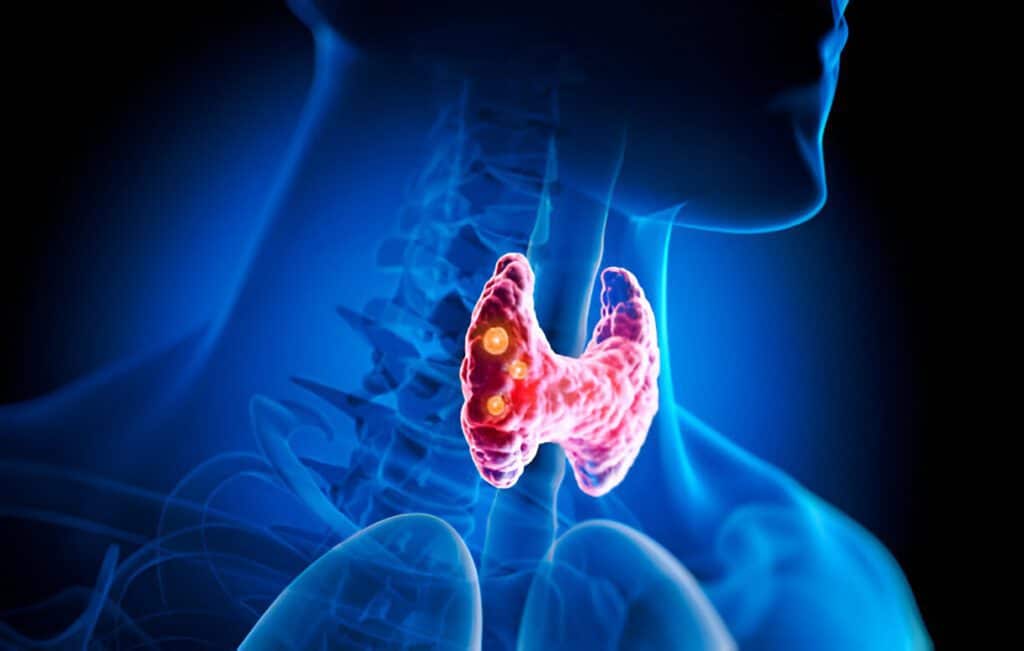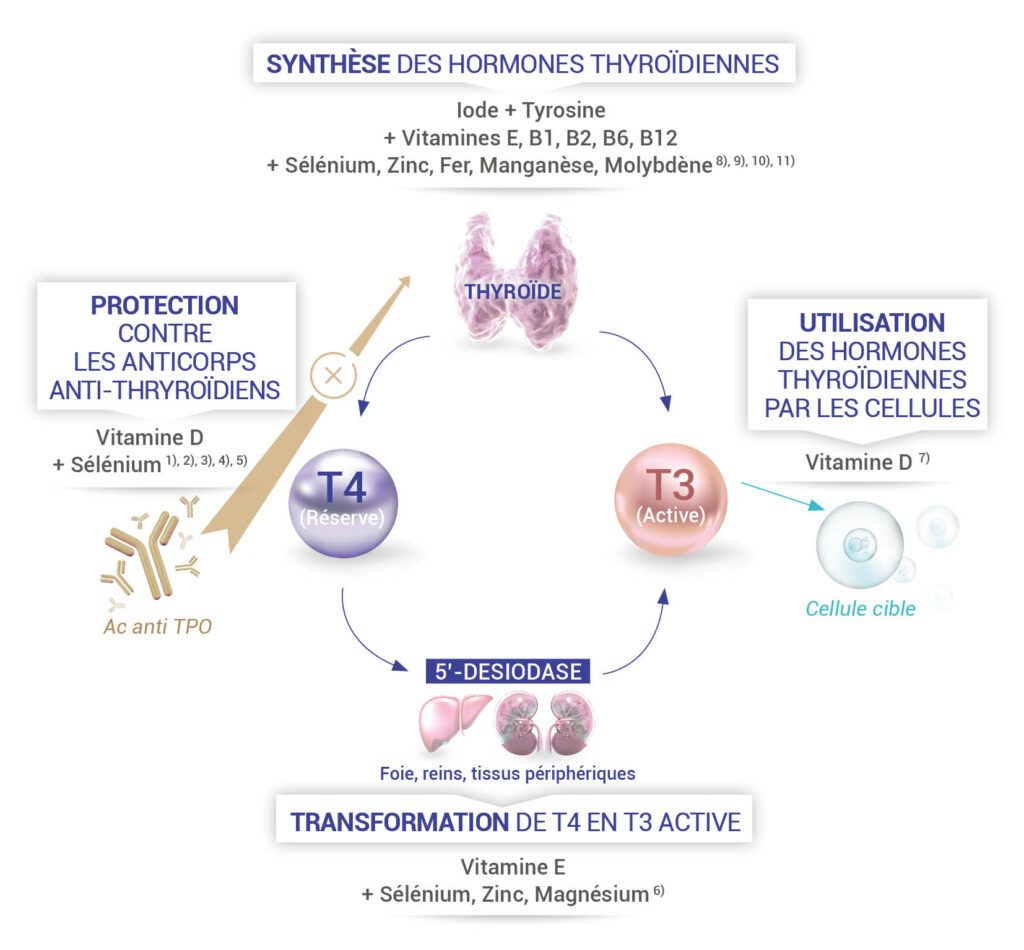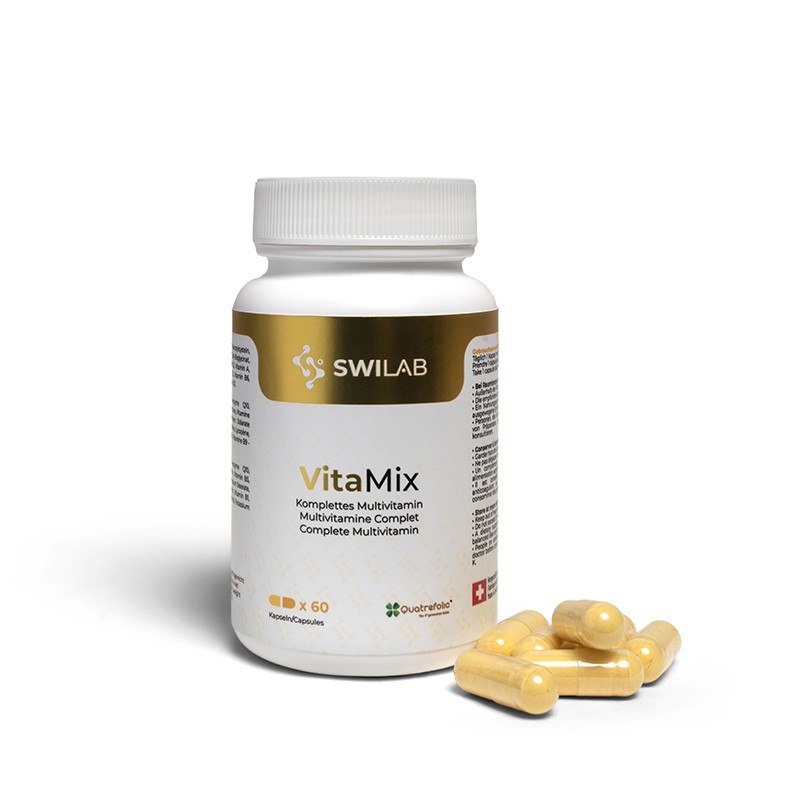L’hypothyroïdie est une affection endocrine où la glande thyroïde ne produit pas suffisamment d’hormones pour répondre aux besoins de l’organisme. Bien que souvent sous-diagnostiquée, cette condition impacte de nombreuses fonctions vitales, du métabolisme à la santé mentale.
Cet article explore les causes, les symptômes, les tests diagnostiques, ainsi que les approches nutritionnelles et supplémentaires pour une gestion optimale de l’hypothyroïdie.

La thyroïde, située à la base du cou, produit deux hormones principales :
La majorité de la T3 est générée à partir de la T4 dans le foie et d’autres tissus via une enzyme appelée monodésiodase. Cependant, plusieurs facteurs peuvent perturber cette conversion (carences nutritionnelles, toxines, stress), ce qui peut entraîner une hypothyroïdie même si la TSH (hormone stimulant la thyroïde) reste dans les limites normales.
Les hormones thyroïdiennes influencent aussi le rythme cardiaque, la régulation de la température corporelle et la croissance cellulaire. Une insuffisance peut donc avoir un impact significatif sur la qualité de vie.
Les signes d’une hypothyroïdie sont variés et incluent :
Ces symptômes étant souvent non spécifiques, un diagnostic basé uniquement sur la TSH peut être limité. Les tests de T3 libre, T4 libre et des marqueurs comme les anticorps antithyroïdiens sont souvent nécessaires.
L’apparition de plusieurs de ces symptômes en même temps devrait motiver une consultation pour approfondir les analyses biologiques.
Les infections chroniques ou inflammations non résolues peuvent aussi jouer un rôle dans le dérèglement thyroïdien.

Outre les tests standards (TSH, T4 libre), les mesures suivantes permettent une évaluation complète :
Un diagnostic complet inclut également l’étude des symptômes cliniques et des habitudes de vie pour déterminer les facteurs aggravants potentiels. Les analyses des urines sur 24 heures peuvent également constituer un excellent outil pour évaluer les niveaux hormonaux et détecter d’éventuelles anomalies métaboliques.
Hygiène de sommeil : Cruciale pour soutenir les fonctions thyroïdiennes
Techniques : Yoga et méditation pour réduire le cortisol
Un exercice régulier, adapté aux besoins individuels, peut améliorer la conversion de T4 en T3 et stimuler le métabolisme.
L’exercice aide également à réduire le stress, à soutenir la circulation et à améliorer le bien-être général. La course à pied est une excellente activité pour cela, et je vous invite à lire l’article dédié sur le blog “Réussir ses débuts en course à pied: pièges à éviter et astuces pratiques efficaces”. Toutefois, une intensité excessive peut être contre-productive pour les patients souffrant d’hypothyroïdie non contrôlée.
Le Vitamix est un multivitamine complet conçu pour soutenir les besoins nutritionnels globaux tout en offrant un appui précieux pour la santé thyroïdienne. Bien qu’il ne se limite pas uniquement à cet aspect, sa formulation riche en nutriments essentiels joue un rôle clé dans le maintien d’une thyroïde saine :
Le Vitamix s’intègre parfaitement dans une routine quotidienne pour soutenir un métabolisme optimal, en complément d’une alimentation équilibrée et d’un suivi médical adapté.

L’hypothyroïdie, bien que complexe, peut être gérée efficacement avec une approche intégrée alliant diagnostic précis, équilibre nutritionnel, gestion du stress et une supplémentation adaptée comme le Vitamix. Ce multivitamine complet offre un soutien global, y compris pour la santé thyroïdienne, grâce à des nutriments essentiels tels que l’iode, le sélénium, la vitamine D, le zinc et les vitamines du groupe B. Si vous présentez des symptômes évocateurs, consultez un professionnel de santé pour une prise en charge optimale.
Références Scientifiques
Santanu Mondal, Karuppusamy Raja, Prof. Dr. Ulrich Schweizer, Prof. Dr. Govindasamy Mugesh – Chemistry and Biology in the Biosynthesis and Action of Thyroid Hormones